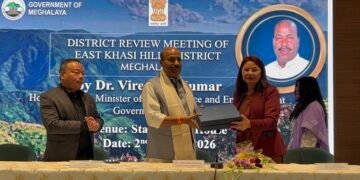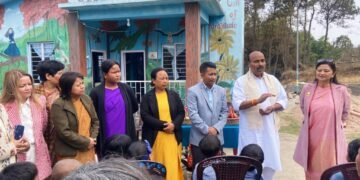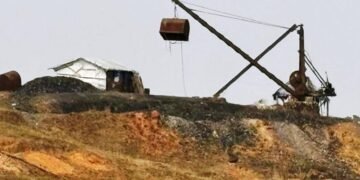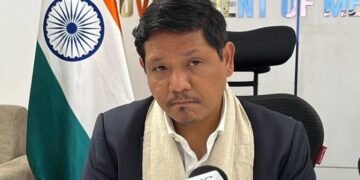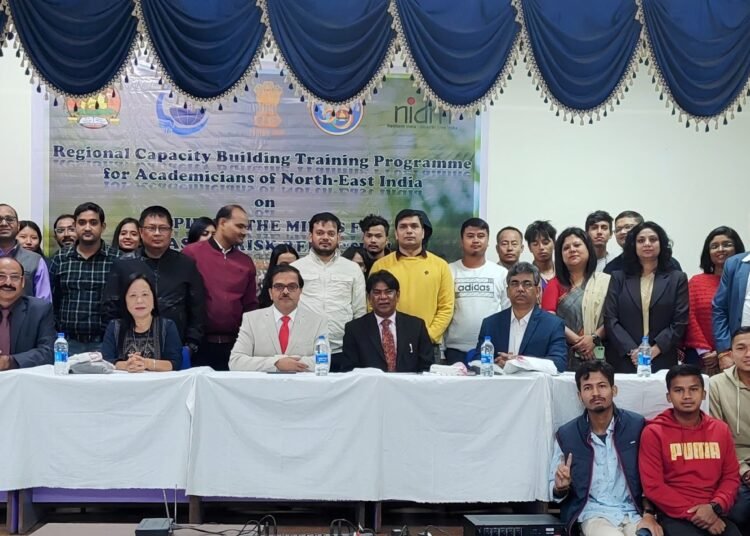A regional capacity building training programme for academics from the North East began here yesterday at the Shillong Science Centre.
The three-day programme is being organised by North-Eastern Hill University (NEHU) and Indian Universities and Institutions Network on Disaster Risk Reduction (IUINDRR-NIDM) along the theme ‘Inspiring the minds for disaster risk reduction’.
In an era marked by growing environmental challenges and the increasing frequency of natural disasters, a collaborative effort to inspire and empower minds for disaster risk reduction has taken centre stage, a press release said today.
The three-day training programme will focus on key considerations and raising awareness, educating the public and encouraging community engagement in disaster risk reduction efforts. More than 60 delegates participated in the training programme from Mizoram, Manipur, Tripura, Assam and Meghalaya.
The inaugural session started with a welcome address by Prof Devesh Walia, the Head of NEHU’s Department of Geology, and emphasised that by integrating disaster risk reduction into development practices, improving early warning systems and enhancing community preparedness, societies can significantly reduce the impact of disasters and save lives.
Prof Santosh Kumar, Head of GIDRR and Director of IUINDRR-NIDM highlighted that disaster risk resilience is of paramount importance because it saves lives, protects communities and economies and ensures that societies can recover and thrive in the face of disasters. There are 216 institutions registered for IUINDRR. By investing in resilience, individuals, and communities nations can reduce vulnerabilities, enhance preparedness and create a safer, more sustainable future.
The programme’s chief guest was NEHU Vice-Chancellor Prof Prabha Shankar Shukla, who advised the young researchers to interrogate critically about the developmental practices currently used in the hilly North Eastern region and understand how they are impacting the society in the long term.
He mentioned that resilience can only be adopted via adapting to climate adaptive solutions, greener approaches and capacity building of local communities involving the stakeholders and empowering the communities to lead and undertake activities to mitigate the impact. Shukla further emphasised that NEHU is ready to take up any challenge so as to safeguard and protect lives and livelihood and welcomed such activities in the interest of the NEHU community and the region at large.
Guest of honour Bhaskar Basu, North East Regional Director of the Atomic Minerals Directorate, highlighted the use of geoscience in an inclusive manner so that the youths are equipped by the skills required to work on sustainable approaches for making the future developmental practices more sustainable and safer for the community.



